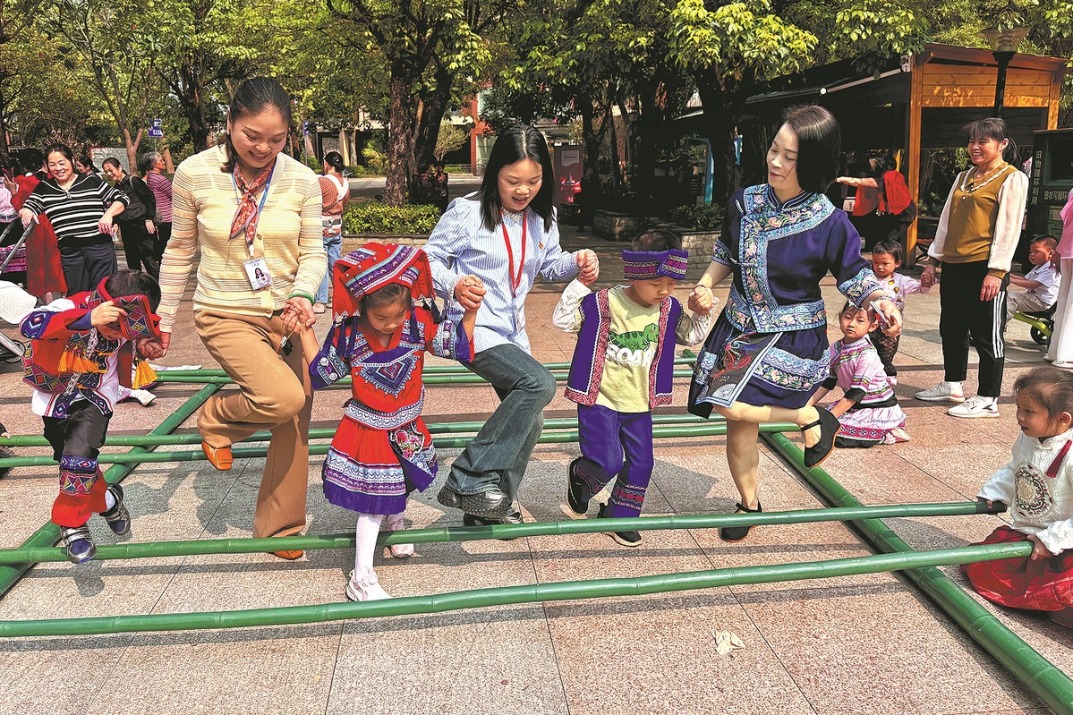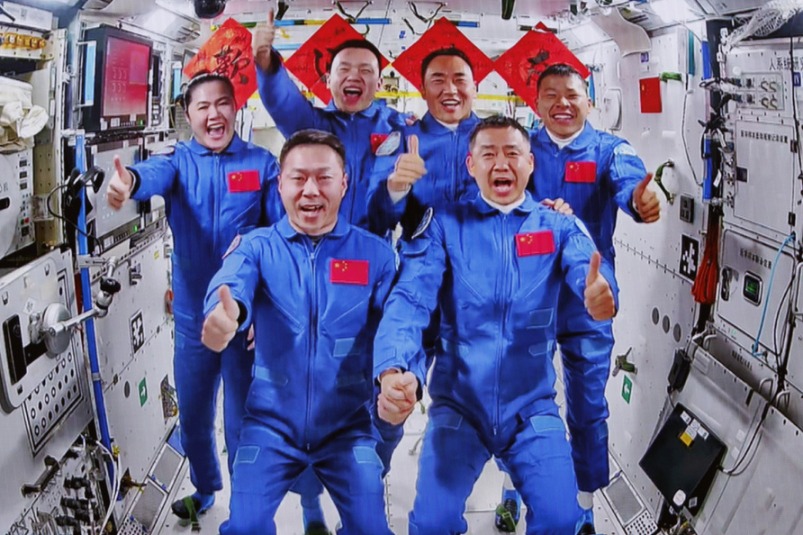Steps mapped out to tackle global woes

China's policymakers have emphasized the need to coordinate domestic economic work with international economic and trade struggles, with efforts focused on stabilizing employment, enterprises, markets and expectations while expanding high-standard opening-up, according to a key Party leadership meeting on Friday.
At the meeting of the Political Bureau of the Communist Party of China Central Committee, which was presided over by Xi Jinping, general secretary of the CPC Central Committee, the country's top leadership analyzed and studied the current economic situation and related work, and called for solid efforts to counter uncertainties from the fast-changing external environment with high-quality development.
The meeting came as China's economy faces mounting challenges amid tariff and trade wars launched by the United States.
It was noted at the meeting that the country has seen a positive trajectory for its economy this year, with public confidence continuously boosted and solid progress made in high-quality development.
However, the foundation for the country's sustained economic recovery needs to be further consolidated, and the country faces a growing impact from external shocks.
It is essential to prepare for worst-case scenarios with detailed planning and take concrete steps to improve economic work, the meeting's participants said.
The policymakers are committed to aiding companies and employees impacted by hefty US tariffs, with efforts to be made to strengthen financing support and accelerate the integration of domestic and foreign trade, according to a statement released after the meeting.
Specific measures also include increasing the allocation of unemployment insurance refunded to companies adversely impacted by tariffs to stabilize employment, cultivating new pillar industries, introducing a "sci-tech board" in the bond market, and speeding up the implementation of the AI Plus initiative, the statement said.
The meeting's participants emphasized the need to implement more proactive macroeconomic policies and effectively leverage more proactive fiscal policies and moderately accommodative monetary policies.
It is necessary to quicken the issuance and utilization of local government special-purpose bonds and ultra-long special treasury bonds, cut interest rates and banks' reserve requirements as needed to ensure ample liquidity and provide strong support to the real economy, they said.
New structural monetary policy instruments and policy-based financial instruments will be established to foster technological innovation, expand consumption and keep foreign trade stable, they added.
The meeting's participants also highlighted the importance of increasing the income of middle and low-income groups, boosting consumption in the services sector and enhancing the role of consumption in driving economic growth.
It was highlighted at the meeting that efforts should be made to step up the building of the unified national market, intensify pilot policies for opening-up in the services sector, and enhance support for enterprises going global.
The meeting's participants underlined the need to work with the international community to uphold multilateralism and oppose unilateral bullying, according to the statement.
In preventing and resolving risks in key areas, the meeting's participants called for continuing the implementation of the package of local government debt policies, accelerating the establishment of a new development model for the real estate sector, and stabilizing and invigorating the capital market.
They also underlined the need to strengthen unconventional countercyclical adjustments, and fully consolidate the fundamentals of economic development and social stability.
Experts said that Friday's tone-setting meeting came at a critical time as US tariff policies are expected to weigh on China's exports and the broader economy starting from the second quarter, indicating that policymakers are taking a forward-looking, effective and targeted macro policy approach to stabilize overall growth while mitigating external shocks.
Zhang Jun, chief economist at China Galaxy Securities, said that concrete steps are expected to follow to stabilize growth, employment and expectations while expanding domestic demand.
The follow-up measures, such as accelerated fiscal spending, reductions in the reserve requirement ratio for banks, interest rate cuts, and scaled-up trade-in deals for consumer goods will help to offset the impact of US tariff hikes, Zhang said.
Yang Chang, an analyst at Zhongtai Securities, said that policymakers are taking a measured approach, guided by worst-case scenario thinking, to prepare for potential downside risks rather than acting on optimistic assumptions.
The statement released after Friday's meeting notably characterized countering the global economic tensions as "struggles", which suggests a long-term strategic approach, Yang said, adding that this reinforces China's dual strategy of focusing on domestic stability while steadily expanding high-level opening-up, especially in the services sector.
Zhou Lanxu and Ouyang Shijia contributed to the story.
caodesheng@chinadaily.com.cn
- Nation to step up IP protection efforts
- China's 40-year journey from adaptation to advancement
- Commemorative event held in Des Moines to mark 40th anniversary of Xi's first Iowa visit
- Couple donate one billion yuan to Fudan University
- Creating opportunities for graduates
- Scientists solve 160-year-old biology puzzle




































